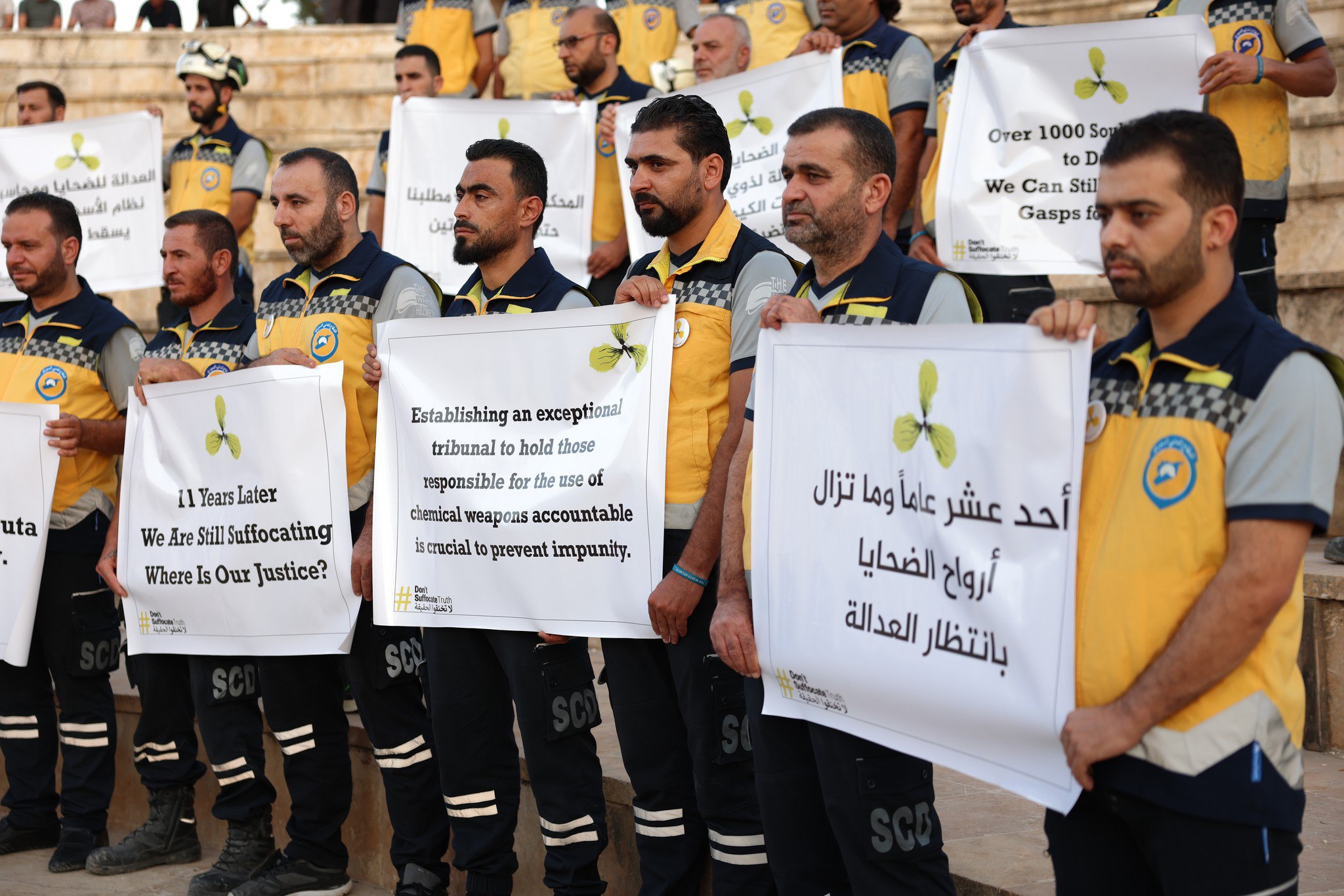
As the global community observed World Humanitarian Day, the humanitarian crisis in Syria remains one of the largest international humanitarian emergencies. This year’s observance, falling so close to the anniversaries of the Daraya massacre and the Ghouta chemical attacks, underscores the ongoing suffering and the urgent need for justice and accountability in the war-torn country.
World Humanitarian Day, celebrated annually on August 19, honors humanitarian workers who risk their lives to help those in need. In northwestern Syria, the day carries a somber significance as it coincides with the release of grim statistics by the United Nations Office for the Coordination of Humanitarian Affairs (OCHA).
Since 2014, at least 130 humanitarian workers have been killed due to hostilities in the region. The Syrian Civil Defense, also known as the White Helmets, reported the loss of 310 volunteers over the years, most of them victims of attacks by the Assad regime and Russian forces while performing their duties. The earthquake that struck Turkey and Syria on February 6, 2023, further compounded the tragedy, claiming the lives of over 100 relief workers engaged in cross-border humanitarian efforts.
“Each day, humanitarian workers in northwest Syria operate in one of the most dangerous environments in the world,” said a statement from the Idlib-based Office of Humanitarian Action Coordination (HAC). “We honor their courage and sacrifice, and we call for increased international support to continue their essential work.”
This year also marks the anniversaries of two of the most heinous massacres in the Syrian conflict. Eleven years have passed since the chemical attacks in Eastern Ghouta, where more than 1,000 people, including many children, were killed by sarin gas deployed by the Assad regime. The attack remains a stark reminder of the regime’s brutality and the enduring struggle for justice.
The Daraya massacre, which occurred over five days in August 2012, saw hundreds of civilians killed in one of the bloodiest episodes of the conflict. Both events have left deep scars on the Syrian population and highlighted the regime’s willingness to target civilians with impunity.
Human rights organizations, including the Syrian Network for Human Rights (SNHR), continue to document these atrocities and advocate for accountability. In recent years, legal efforts in Europe have led to the issuance of international arrest warrants for Bashar al-Assad and several senior officials, signaling a significant, albeit slow, move towards justice.
Today, northwestern Syria is home to over 5.1 million people, with 4.2 million in need of assistance. Of these, 3.3 million suffer from food insecurity, and 3.5 million are internally displaced, many living in dire conditions in makeshift camps. The UN warns that nearly 1 million children are out of school, and essential services, such as water and sanitation, are severely lacking in nearly half of the region’s camps.
Despite these urgent needs, the cross-border humanitarian response faces significant funding gaps, leading to scaled-back operations and reduced humanitarian activities. The HAC has called for immediate international action to address the crisis.
“More than 907,000 people in 660 camps lack basic water and sanitation services,” the HAC stated. “If support is not increased, an additional 250,000 people in 192 camps could be deprived of these essential services by September.”
The HAC’s statement on World Humanitarian Day highlighted the urgent need for increased financial support, protection of civilians and humanitarian workers, and sustainable solutions to end the crisis.
“We urge the international community to not only remember the humanitarian workers who have lost their lives but also to take concrete steps to ensure that the survivors of these atrocities receive justice,” the HAC said. “The protection of civilians and humanitarian workers is not just a moral duty but a legal obligation under international law.”
The White Helmets, emphasized the necessity of an exceptional tribunal to prosecute those responsible for the use of chemical weapons in Syria. “An exceptional tribunal is our demand so that we don’t suffocate twice,” read one of the banners held by participants. The call for such a tribunal is seen as a crucial step toward breaking the cycle of impunity that has allowed war criminals to evade justice.








